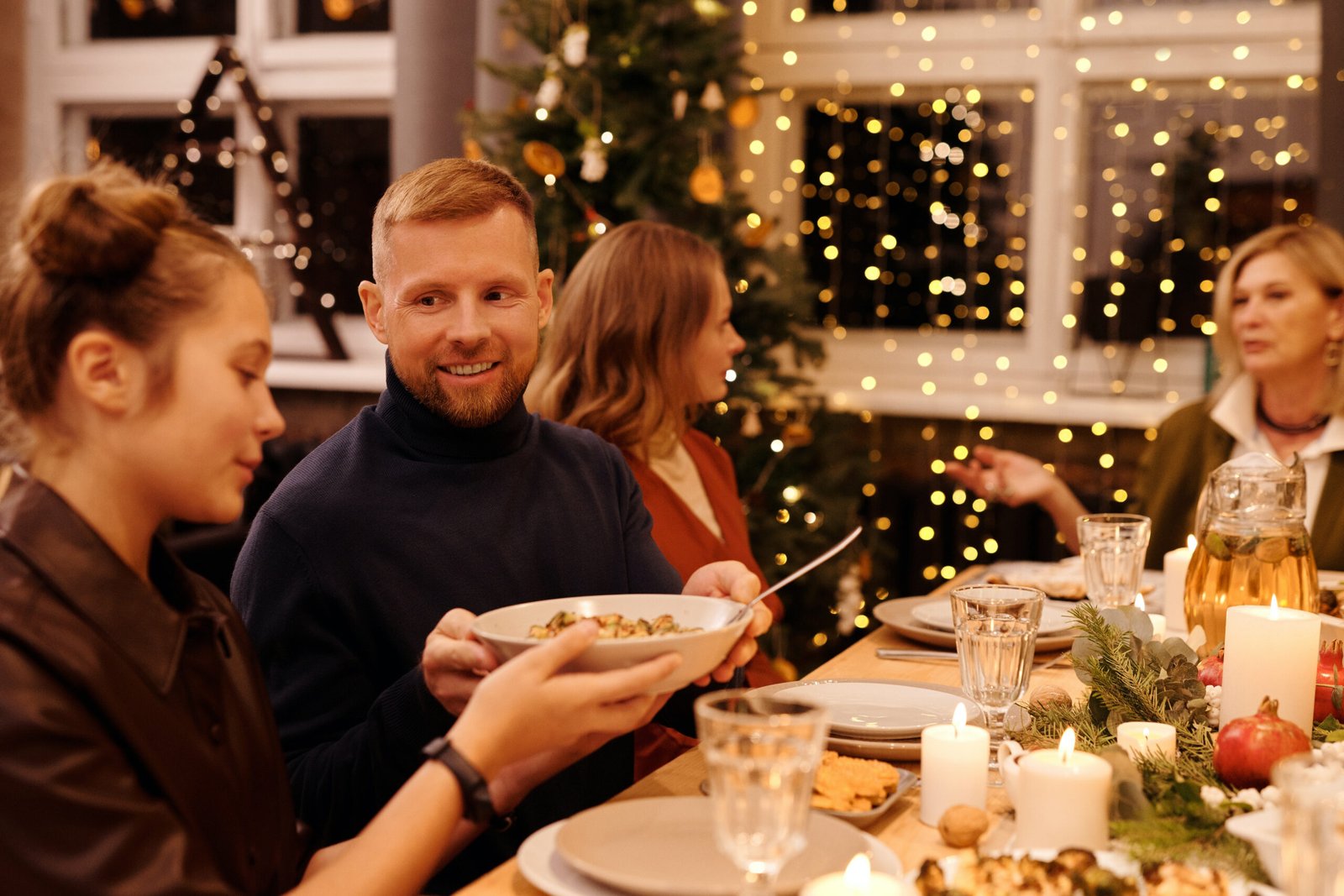
Eating Disorders and the Holidays: Setting Yourself Up for Success
December 13, 2022

The holidays can be a challenging time for many people. As a society, we perceive these seasons as happy moments filled with gratitude and togetherness. However, research suggests that during the holidays, there are increased rates of mental disorders across the board, including anxiety, depression and eating disorders (EDs).
This time of year can be particularly overwhelming for those struggling with an eating disorder, as holidays tend to be centered around food. Below are some tips about how to prepare, plan and maintain recovery.
Recognize and Understand Your ED Behaviors
First, we need to identify triggers that have historically led to slip-ups (engaging in restricting for one meal or body-checking once a week) and potential relapse (fully engaging in eating disorder behaviors on a consistent basis, impairing daily functioning). When we can recognize this, we can find ways to prevent it and combat triggers.
Start the Conversation Early With Someone Safe
Talking about the holidays with family and friends you trust in advance helps create proper support and predictability – the foods, social events, and the family dynamics that are associated with them. It also helps keep you from feeling isolated.
In my experience, working with patients suffering from eating disorders, I have come to understand how much the disorder takes away from their world. As the body deteriorates, so do most of the things around them. Not because they aren’t loved or supported, but because the ED:
- Consumes them
- Makes it difficult to go out to eat with friends because they might notice or maybe there is fear of the food/menu/place
- Makes it physically difficult to engage because energy starts to plummet.
So TALK about it!! Having someone there to support you, to help you stay accountable and to help you challenge the eating disorder is critical during the holidays.
Communicate Major Triggers
Share topics with family and friends that might be particularly helpful to avoid as it relates to your eating disorder, especially if it might impede recovery. This may include sharing what hurtful comments might look like for someone struggling with an ED: “I can’t believe I ate this much,” “I feel like I’ve gained 50 lbs,” “I’m going to have to go on a major diet after the holidays”.
This will help create additional support structures for you.
Set Boundaries
You can also communicate these topics when you feel triggered. This will help set boundaries. In addition, don’t be afraid to walk away from a situation once you’ve noticed you’re approaching your threshold. A boundary can also be in the form of taking space and allowing yourself to process or taking recovery action such as going to a safe space where you can collect yourself and find some peace.
Get in the Right Mindset
Ahead of any family event of social gatherings at the holidays, help get yourself into a good frame of mind with active intentions and coping behaviors:
- Engage in Mindfulness – Practice yoga, meditation and being present in the moment. If necessary during a family meal or holiday gathering, find a safe or quiet space where you can breathe and gather your thoughts.
- Practice Self-Care – Go get your nails done, get a facial and spend time with people who fill your cup not those who deplete it. Practice setting boundaries (ask yourself if you actually want to go and if you don’t, don’t!).
- Practice Gratitude – Journal when feeling anxious, and give gratitude for your body, for the ways it serves you, not for what you believe about the way it looks. For example, say, “I’m grateful for my arms because they allow me to hug people that I love” or “I’m grateful for my ears because they allow me to hear music.”
Create a Coping Skill Toolbox
During your family events, meals or gatherings, remind yourself about any coping skills learned in your recovery process and allow yourself easy access to these skills. These can include:
- Support Network – reaching out to your support person(s) if you find yourself reaching your limits
- Opposite Action – actively taking the opposite action as it relates to engaging in eating disorder behaviors or negative self-talk
- Delaying Time – related to engaging in behaviors such as purging or body checking (e.g. “wait five minutes and if I still have the urge, wait five more minutes”, and so forth)
- Staying Distracted – specifically after meal time and making your support system aware that you need to stay engaged for the hour after any meal time
Practice Intuitive Eating
Don’t forget to continue listening to your body and paying attention to your hunger cues. Questions to ask yourself: “Am I still hungry or am I feeling full?”, “If I’m hungry, I’ll grab seconds, if I’m not, I don’t have to finish what’s on my plate.”
Expect the Unexpected
One of the most challenging aspects of the holiday season is that we can’t control other people’s behavior or what they will say! Comments related to your looks, or how much you are eating or not eating, or what you are eating, apply pressure or may hurt you in ways that many people don’t even realize.
Recognizing that your ED can be triggered by comments or conversations during this time can help you properly prepare your toolbox of coping skills.
Continue Treatment
Schedule therapy in advance for right before and right after the holidays. Stick to meal plans created by you and your treatment team, and stay active with prescribed medications.
The holidays can be a challenging time for those who struggle with eating disorders. However, by preparing early, understanding the triggers to look for, and creating safe spaces and environments that support your journey, you can minimize the chance of relapse.
Eating disorders are very serious mental illnesses that can have life-threatening consequences. If you think you or someone you know may be struggling with an eating disorder, please reach out to us.

With a background in Psychology from The University of Texas at Austin and a Master’s in Counseling from Southern Methodist University, Courtney is a Licensed Professional Counselor in Texas specializing in child and adolescent therapy, trauma, and mental health support. She has experience working with diverse populations, including students, individuals on the autism spectrum, and those struggling with anxiety, depression, and eating disorders. Passionate about fostering emotional well-being, she has led therapy groups and provided counseling in various clinical and academic settings.
accept
We use cookies to improve your browsing experience and ensure the website functions properly. By selecting 'Accept All,' you agree to our use of cookies.
© Tmg XXXX
Brand & Website by Writefully Said
Contact our office:
The Montfort Group is a highly-trained team of professional therapists in Plano, TX providing counseling and support for individuals, couples, teens, and families.
Stay Connected
Schedule Now